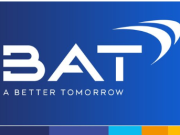BAT has cut 10% off its target for revenue from electronic and noncombustible cigarettes, as it forecasts 900 million pounds ($1.2 billion). This loss is a result of recalling a device in the US and a drop in the Japanese demand for Glo. “It’s not going to sweep the world as some of our competitors say it will,” said Ben Stevens, BAT’s financial director, referring to its HnB device.
“The long-term investment case at BAT — and for the industry — is opaque compared with what we have come to expect from tobacco,” said James Edwardes Jones, an analyst at RBC Europe who rates the stock underperform.
The Disruption to Tobacco Farming in Developing Countries
On the other hand, another sector of the tobacco industry is also struggling. Due to the ongoing drop in smoking, millions of tobacco farmers in poor countries will be losing their livelihoods. An article on The Hill, points out that measures should be taken to avoid disaster and help turn tobacco farming businesses into non-tobacco agricultural ones.
“This disruption, if managed properly, could be an opportunity for African farmers to switch to non-tobacco agricultural products and increase the global food supply,” read the article.
With the current world population expected to reach 9 billion by 2050, out of which 2.2 billion will live in Africa, the world is not going to be able to meet the future food demand. For this to be met, about 50% more food, feed, and biofuel will need to be produced, which would need an investment of $265 billion per year. Therefore, if former tobacco farmers were to be trained, equipped and supported to switch to farming food, rather than tobacco, it would be a win win situation for everyone.












